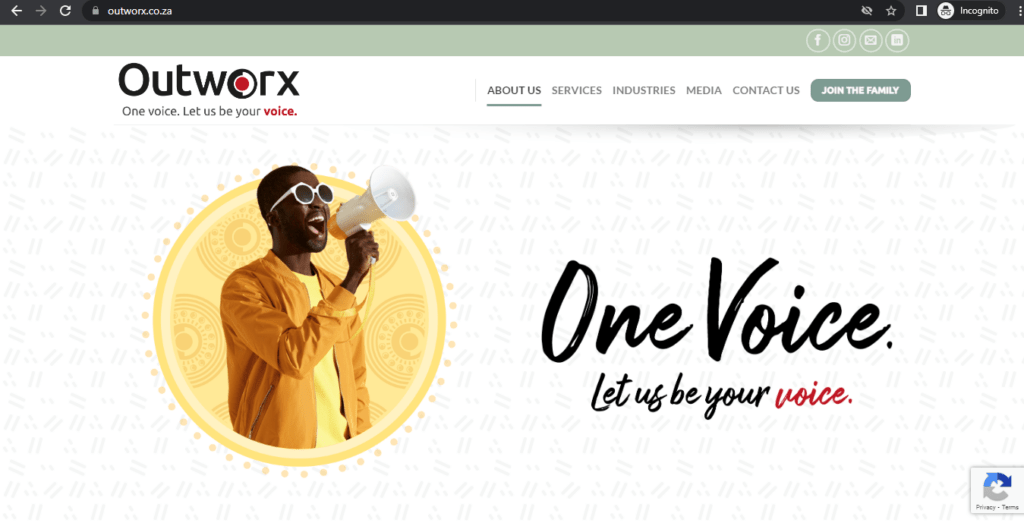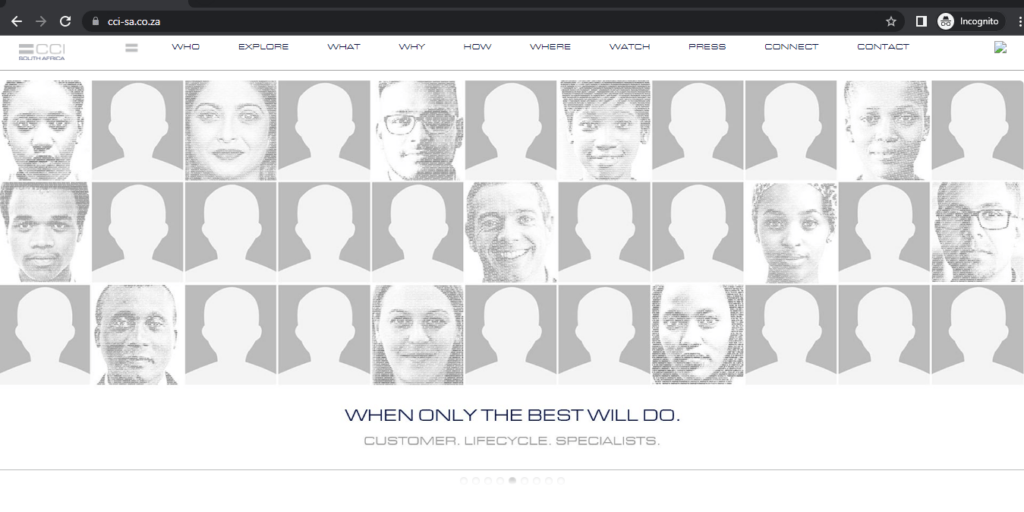South Africa is the third-largest economy in Africa, after Egypt and Nigeria. The country has become a hub for outsourcing in recent years.
Companies outsourcing to South Africa can benefit from labor cost savings and an educated English-speaking workforce.
In this article, we’ll discuss the benefits of outsourcing to South Africa. We’ll also describe the growth of South African Business Process Outsourcing (BPO) and outline the top South African outsourcing cities and companies. Lastly, we’ll cover some of the challenges of outsourcing to South Africa.
Table of Contents
- 7 key benefits of outsourcing to South Africa
- Growth of BPO outsourcing sector in South Africa
- 5 main business processes outsourced to South Africa
- 3 major South African outsourcing companies
- 3 major challenges of outsourcing to South Africa
Let’s begin.
7 key benefits of outsourcing to South Africa
Outsourcing refers to contracting activities that are not core business processes to a third-party company, domestically or overseas.
Here are seven key reasons to consider outsourcing to South Africa:
1. Low labor costs
South Africa has lower living and labor costs than most developed countries, such as Australia, the United States of America (US), the United Kingdom (UK), and Canada. Businesses in such countries may be able to save up to 50% on their expenses by outsourcing to South Africa.
The average salary in South Africa in 2022 is 31,100 ZAR (South African rand) per month. This equates to 1,997 USD per month based on the exchange rate in April 2022. This is significantly more cost-effective than the average monthly salary in the UK (7,541 USD) and the US (7,900 USD).
South Africa’s lower cost of living also compliments its low labor costs. For example, Cape Town’s cost of living is around 50% lower than Los Angeles and 57% lower than London.
To learn more about the average salary in South Africa, you can read this article!
2. Educated workforce
South Africa’s universities produce around 160,000 graduates per year. Approximately 60,000 of these graduates have IT or engineering degrees.
A further 410,000 people enter the workforce yearly with the right skills to work in the BPO industry.
Many outsourcing companies in South Africa employ students and graduates from nearby universities. This allows them to provide educated employees at a low cost for outsourcing.
In addition, many graduates struggle to find work within the country. The unemployment rate for graduates in 2021 was 12.5%. This means that many educated people in South Africa are eager for new job opportunities.
3. Convenient time zone
South Africa’s time zone makes it a preferred outsourcing destination for European countries. South Africa is just two hours ahead of the UK and one hour ahead of most other European countries, like Germany and Sweden.
South Africa has a larger time difference for US (6 to 9 hours) and Australian companies (6 to 8 hours). This can be beneficial for companies that want to have 24/7 customer service. South Africa can provide after-hours support to customers in these countries.
In addition, South Africa’s time difference with the US is smaller than in Asian countries like India (9.5 to 12.5 hours) and China (12 to 15 hours).
4. Large English-speaking and multilingual population
English is the primary government and business language in South Africa. There are approximately 16.5 million English speakers in the country.
South Africa placed an impressive 12th in the 2021 EF English Proficiency Index. It outranked many other prominent outsourcing locations, including Poland (16th), Malaysia (28th), India (48th), and China (49th).
Besides English, many South Africans speak other internationally-spoken languages such as Portuguese, French, and German.
5. Powerful internet infrastructure
South Africa has a robust internet and telecommunications infrastructure. In recent years, the country has made a shift to fiber internet with the installation of the SEACOM fiber-optic network. This allows for fast and reliable internet connectivity.
The strength of South Africa’s internet infrastructure allows the country to offer quality services efficiently.
6. Government support and incentives
The South African government provides financial support for companies outsourcing to South Africa. This is because outsourcing stimulates development through foreign investment and job creation.
The primary bodies that govern the outsourcing industry are:
- The Department of Trade, Industry, and Competition (DTIC).
- Business Process Enabling South Africa (BPESA).
- CapeBPO, for the Western Cape.
BPESA and CapeBPO are private sector entities that partner with the government to provide foreign companies with assets like subsidized office space, computers, and the internet. The government also provides grants and tax discounts as a reward for job creation.
For example, in 2019, the DTIC implemented the Global Business Services (GBS) Incentive. This initiative provides operational expenditure grants in proportion to the number of South Africans a company employs through outsourcing.
7. Cultural affinity
South Africans keep up with US and UK pop culture and media, such as TV shows and music. This means they’re aware of their lifestyle, language, and culture. In April 2022, the top 10 most-watched Netflix shows in South Africa contained five American and four British series.
South Africans also celebrate many of the same holidays as Western Countries, such as Christmas and Easter. Closely matching calendars can make working together easier and further signify cultural similarity.
Let’s now look at the scope and growth of South Africa’s BPO sector.
Growth of BPO outsourcing sector in South Africa
BPO is the process of contracting core business processes to a third party. South Africa has become a top BPO destination in recent years.
The South African outsourcing sector provides many BPO Services, including telecommunication, financial, and legal services.
South Africa’s BPO industry has grown by 22% yearly since 2017. The market growth rate was three times faster in South Africa than in India or the Philippines.
According to the South Africa BPO Market Report highlights from 2020, South Africa’s BPO sector is expected to reach 3.6 billion USD by 2027.
By 2020, South Africa’s BPO sector employed over 270,000 people. The DTIC has set targets to increase this number by 250,000 to 500,000 by 2030.
About a quarter of employees working for South African BPO companies serve international clients.
South African offshore outsourcing companies serve clients in the following countries:
- The UK (61%)
- The US and Canada (18%)
- Australia and New Zealand (11%)
In June 2020, Amazon announced its plan to hire 3000 South Africans in work-from-home customer service and technical support jobs to serve its US and UK clients. The presence of multinational companies outsourcing to South Africa is a good indicator of the country’s world-class BPO quality.
South Africa was also voted “Most Favored Global Offshore Customer Experience Delivery Location” in the Ryan Strategic Advisory BPO Survey in 2021, after three years in second place.
If you want to learn more about BPO, you can read this article!
Let’s now explore the different business services South African BPO providers commonly offer.
5 main business processes outsourced to South Africa
Here are five examples of popular BPO services in the South African BPO market:
1. Customer support
South Africa is most famous for providing customer support services such as call centers. This is mainly due to its large English-speaking and multilingual population, and its strong telecommunications infrastructure.
In addition, the South African time zone is perfect for European customer service and after-hours service to North America and Australia.
There are approximately 240,000 call center agents employed in South Africa.
2. Information technology (IT)
South Africa succeeds in the IT sector due to its advanced technology and large talent pool.
In 2021, five South African universities placed in Times Higher Education’s Top 891 universities for computer science.
South Africa was also named an emerging country for both technology and data science in the 2020 Coursera Global Skills Index.
South African BPO providers can provide high-quality IT-related services, such as:
- Technical support.
- Web and app development.
- Software development.
- Cloud services.
- Cybersecurity.
- Data analytics.
3. Financial services
According to a 2019 publication by the South African Department of Higher Education, courses related to finance and accounting were the 6th most popular in that year. The top five spots included some engineering and education courses.
Companies can therefore also outsource some of their financial processes to South Africa, such as:
- Accounting
- Taxation
- Financial advice.
4. Human resources (HR)
South Africa was ranked the 5th most favored Human Resources Outsourcing destination in the 2018-2019 Global HRO and Employee Experience Survey.
HRO includes outsourcing:
- Recruitment and hiring.
- Payroll management.
- HR consultancy.
To learn more about HRO, you can read our guide here.
5. Marketing and sales
According to Business Tech, South African marketing companies have seen more international demand for their services since the pandemic.
Businesses can hire marketing and sales professionals to:
- Handle sales.
- Attract new leads through marketing.
- Increase your brand awareness.
To read more about the different types of BPO services, take a look at this guide.
Wondering how you can find the right team in South Africa?
Let’s look at three outsourcing companies you can partner with to set up a South African operation.
3 major South African outsourcing companies
The main BPO companies in South Africa are usually located in big cities like Cape Town, Johannesburg, and Durban.
Here are three outsourcing companies you can work with for outsourcing to South Africa:
1. Digital Solutions Group (DSG Group)

DSG group is a prominent digital services outsourcer with its main offices in Johannesburg, South Africa. It provides several services, including:
- BPO through their Customer Experience Group (CXG).
- Digital development and design.
- Marketing solutions.
DSG Group won the gold award for the best outsourcing partnership in Europe, the Middle East, and Africa at the 2021 Contact Center World Awards.
2. Outworx Contact Center

Outworx is a BPO provider based in Durban, South Africa. Its core competencies include:
- Financial services.
- Back office services.
- Telecoms solutions.
This service provider structures its operations to provide 24/7 support. It also utilizes advanced data analytics to continuously improve customer interactions.
3. CCI South Africa

CCI South Africa is the largest international call center in the country. They employ over 9,000 South Africans at a large, purpose-built call center “city” in Durban. They’re also members of the BPESA.
Their call center services include:
- New customer acquisition.
- Customer service and technical support.
- Upselling
Finally, let’s explore the difficulties of outsourcing to South Africa.
3 major challenges of outsourcing to South Africa
Here are three challenges facing the outsourcing industry in South Africa.
1. Economic effects of COVID-19
South Africa, like many countries, was negatively affected by the 2020 COVID-19 pandemic. Its Tholons Services Globalization Index (TSGI) ranking dropped four places in the aftermath of the pandemic. The South African GDP also fell by 8.2% in 2020.
This was a cause for concern for foreign investors. The United Nations (UN) reported that foreign direct investment (FDI) in Southern African countries dropped by 16% as a result of COVID-19. The total FDI flow in South Africa decreased by almost 40%.
However, according to Harvard Business Review, South African companies were more prepared to transition to remote work than some other outsourcing destinations such as India and the Philippines.
The country’s GDP recovered to a 3% increase in 2021.
2. Inconsistent electricity supply
Due to electricity supply shortages, South Africa has a “load shedding” system of scheduled power outages. Electricity is cut off in groups, usually for two hours once or twice a day. In 2021, South Africa experienced 1130 hours of load shedding, which was the highest ever.
Power outages can interrupt work and internet access. However, many South African individuals and businesses have set up workarounds like owning generators and Uninterruptible Power Supplies (USPs).
3. Lack of reliable transportation
For any business to run smoothly, employees need to be able to arrive at work and be on time. Lack of access to reliable transportation could mean outsourcing businesses may need to provide travel compensation or may experience supply chain instability.
Public transportation is underdeveloped in South Africa. There are bus and train systems in more developed cities, like Cape Town and Johannesburg. However, these can be unreliable and expensive.
In less urbanized areas, citizens often rely on minibus taxis. These taxis don’t tend to run on a strict schedule.
According to the Mail and Guardian news outlet, the benchmark for how much a person in a developing country should spend on transportation is 10% of their monthly income. However, in South Africa, this number is as high as 50% in metropolitan areas and 20% in rural areas.
However, the increase in work-from-home opportunities post-pandemic could help solve this problem. Businesses looking to outsource to South Africa may benefit from implementing flexible working solutions.
Wrapping up
South Africa is an excellent offshoring destination thanks to its low labor costs and large workforce of educated English speakers. South Africa can supply many different outsourced services and is a prominent BPO provider.
If you’re interested in outsourcing to South Africa, this guide can help you understand the various benefits, sectors, cities, companies, and challenges.
To read more about outsourcing to other countries, you can visit the Time Doctor blog.

Andy is a technology & marketing leader who has delivered award-winning and world-first experiences.


